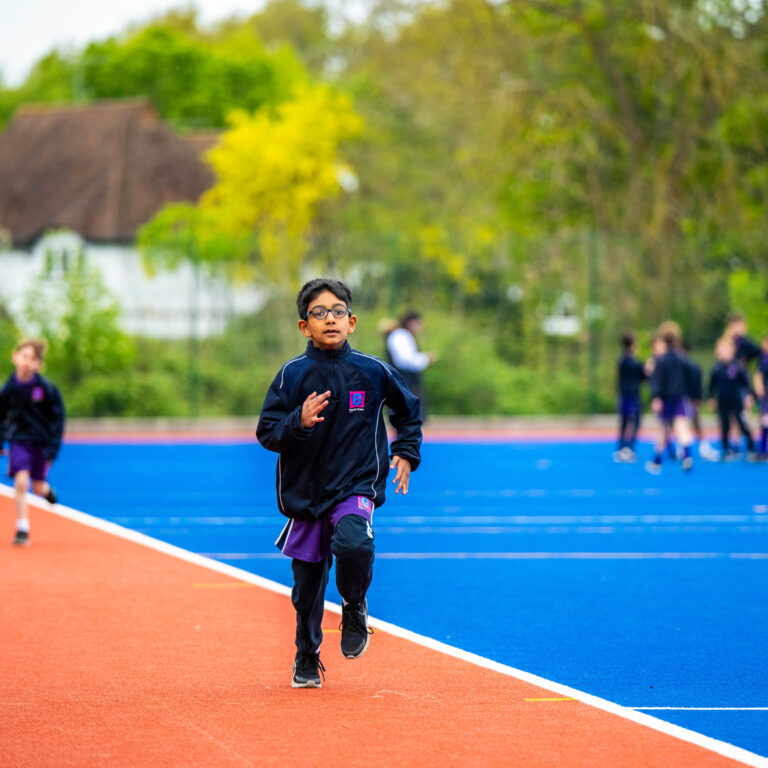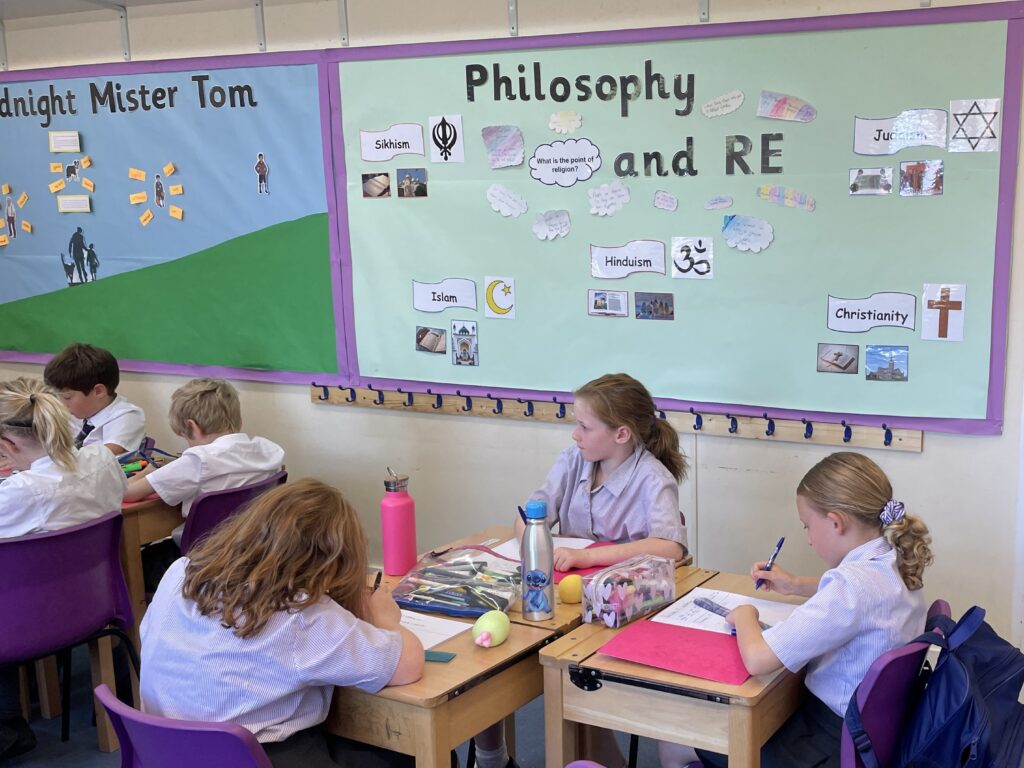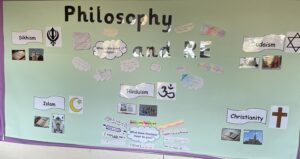
Exploring robots and religions
As the Marketing Manager at Weston Green, I recently had the pleasure of visiting a Philosophy and Religious Education (PRE) session at our prep school. The children were engaged in a fascinating topic:
“What would it be like to have a perfect robot with feelings and religious beliefs created by an engineer?”
The session started with a brief introduction to different religious symbols and places of worship. The children were asked to identify and describe the symbols and their meanings, and to share their own experiences of visiting or learning about different religions.
Then, the class were presented with a hypothetical scenario: imagine that an engineer has created a robot that can think, feel, and believe. The robot has a name, a personality, and a belief system. The children were asked to consider the following questions:
-
What would the robot look like?
-
What would the robot believe in?
-
How would the robot express its beliefs?
-
How would the robot interact with other robots and humans?
-
What are the advantages and disadvantages of having such a robot?
The children were divided into small groups and were provided with paper and coloured pencils to draw their own robots and note their answers. They were encouraged to be creative and imaginative, and to use their knowledge of different religions as inspiration.
The session was full of interesting discussions and debates amongst the children. With ‘no right answer’, they were able to freely discuss and explore their opinions and beliefs, sparking conversations and creativity within their groups. They also learned how people use religion to be part of a community, express themselves, cope with emotions, give gratitude and thankfulness, and more.
The children designed their own robots, giving them names, belief systems, and key beliefs. Some examples of their creations are in these images 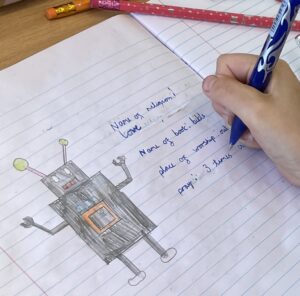
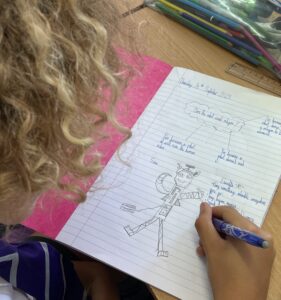
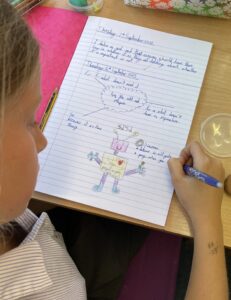
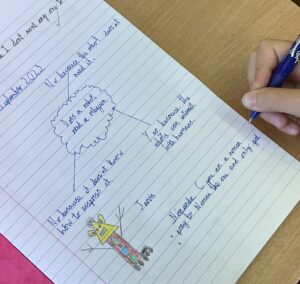
The children really enjoyed the session and afterwards commented:
-
“Not even a robot is perfect.”
-
“Robots don’t have feelings.”
-
“Drawing religious robots made me think a lot.”
-
“I enjoyed being able to be creative.”
-
“I enjoyed making our own religion.”
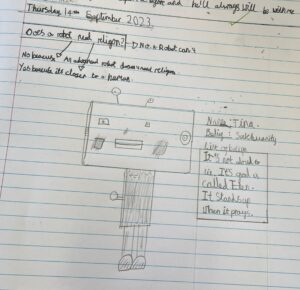
I would like to thank Mrs Hansraj for organising such an engaging and stimulating session, and the children for sharing their wonderful ideas and creations with me.

